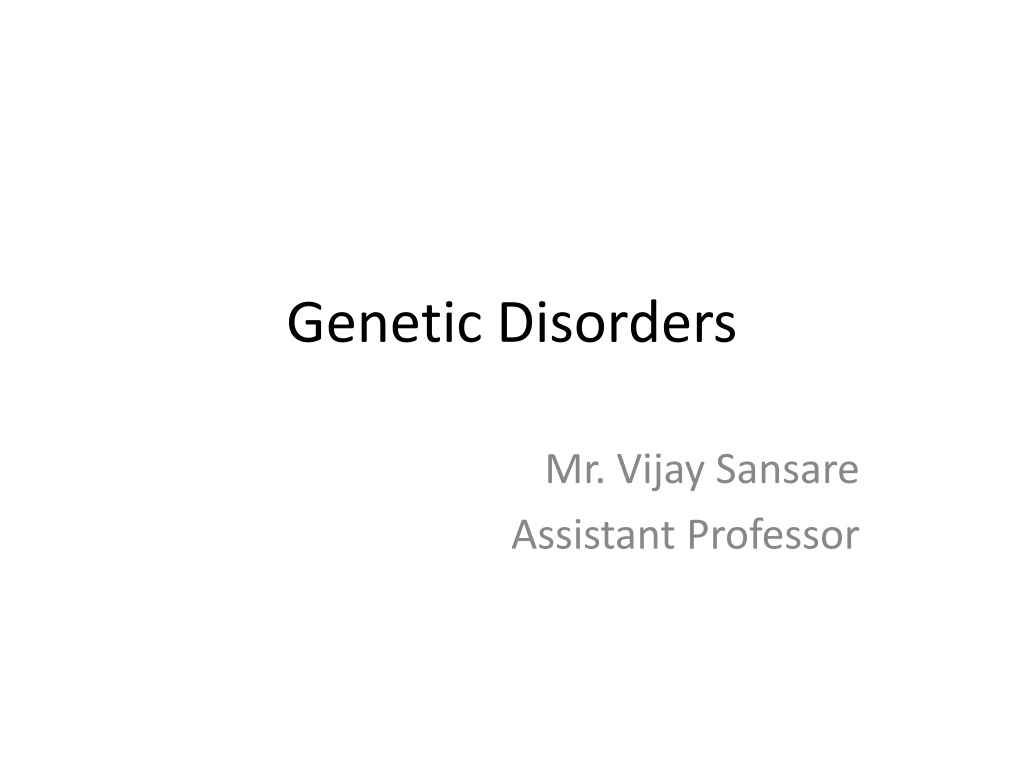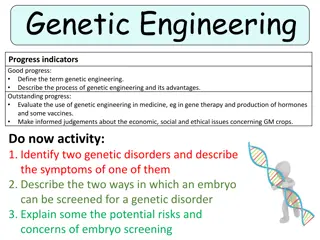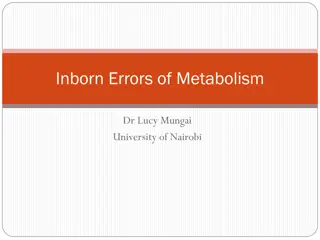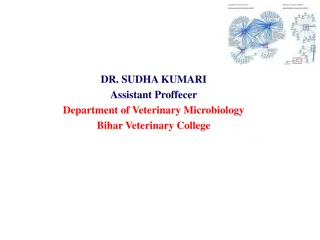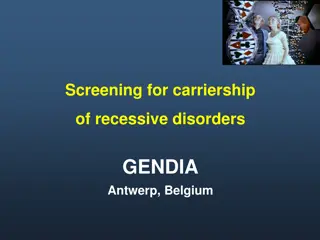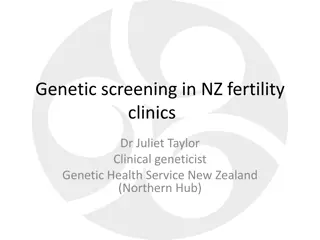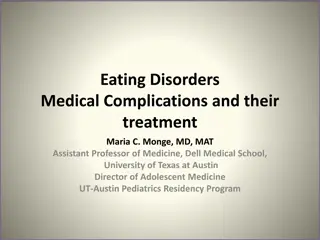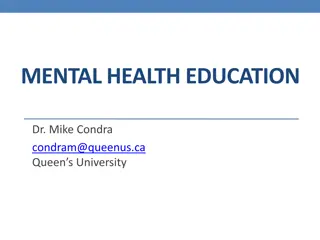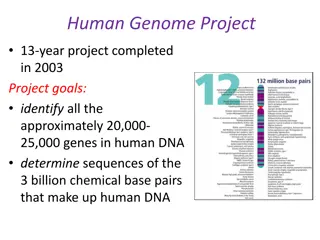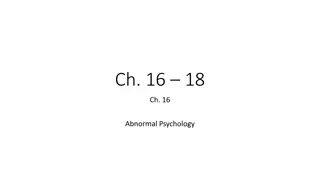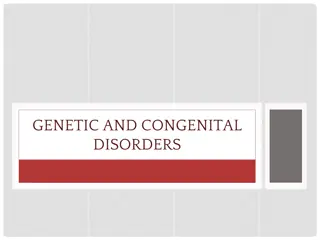Understanding Genetic Disorders and Their Impact on Health
Genetic disorders are caused by abnormalities in genes or chromosomes, leading to various health conditions. Inherited disorders can be passed down from parents to children, affecting physical makeup and processes in the body. In India, there is a high prevalence of genetic disorders, particularly in children, due to factors like consanguineous marriages. Awareness and genetic counseling play a crucial role in managing and preventing such disorders.
Download Presentation

Please find below an Image/Link to download the presentation.
The content on the website is provided AS IS for your information and personal use only. It may not be sold, licensed, or shared on other websites without obtaining consent from the author. Download presentation by click this link. If you encounter any issues during the download, it is possible that the publisher has removed the file from their server.
E N D
Presentation Transcript
Genetic Disorders Mr. Vijay Sansare Assistant Professor
What is a gene? A gene is a small piece of hereditary material called DNA that controls some aspect of person s physical makeup or a process in the body. Genes comes in pairs.
What are chromosomes? Chromosomes are the structures inside cells that carry genes. Chromosomes also come in pairs. Most have 23 pairs of chromosomes for a total of 46 chromosomes. Sperm and egg cells each have 23 chromosomes. During fertilization when the egg and sperm join, the two sets of chromosomes come together. In this way, one half of a baby s genes come from the baby s mother and one half come from the baby's father cells
What causes genetic disorders? Genetic disorders may be caused by problems with either chromosomes or genes.
What is an inherited disorder? An inherited disorder is caused by defective genes that can be passed down by parent to their children. Defective genes can occur on any of the chromosome. A genetic disorder dominant, autosomal recessive or sex linked. can be autosomal
Genetic Disabilities A genetic disorder is a genetic problem caused by one or more abnormalities in the genome. Most genetic disorders are quite rare and affect one person in every several thousands or millions.
Children Status of Genetic Disorder With a very large population and high birth rate, and consanguineous marriage communities, there is a high prevalence of genetic disorders in India. An estimated 495,000 malformations, 390,000 with G6PD deficiency, 21,400 with Down syndrome, 9,000 with -thalassaemia, 5,200 with sickle cell disease, and 9,760 with amino acid disorders are born each year. The prevalence of late-onset multi-factorial disorders (including coronary artery disease, hypertension and psychiatric disorders) is also large. favoured in many infants with congenital
'Indians at a higher risk of rare genetic diseases' The practice of marrying community poses a higher risk of rare diseases among Indians. As per the estimate from the Ministry of Health and Family Welfare, India could be home to over eight corer persons suffering from rare diseases an umbrella term used to denote a spectrum of over 5000 diseases usually of genetic origin. within the
'Indians at a higher risk of rare genetic diseases' Consanguineous marriages from same bloodline, practice has made India home to 56 million persons with single gene disorder. The international estimates suggest that 6-8% of Indians suffer from the problem. It is said that 80% rare diseases are of genetic origin and hence they disproportionately impact children. Over 50% of new cases in children are reported each year. Disease are responsible for 35% death before the age of 1 year, 10% between the ages of 15 years and 12% between 5-15 years. There is no treatment available for a large number of diseases and on treatment available disease have high cost.
List of Genetic Disorder Haemophilia Thalassemia Sickle-cell anaemia Primary immuno deficiency Auto-immuno diseases Lysosomal storage disorder (such as pompe disease, hirschsprung disease, gaucher s disease, cystic fibrosis, hemangiomas) Muscular dystrophies
References http://timesofindia.indiatimes.com/articlesho w/65233813.cms?utm_source=contentofinter est&utm_medium=text&utm_campaign=cpps t https://www.karger.com/Article/Pdf/66335 https://www.ncbi.nlm.nih.gov/pubmed/1126 2988 https://www.acog.org/-/media/For- Patients/faq094.pdf
